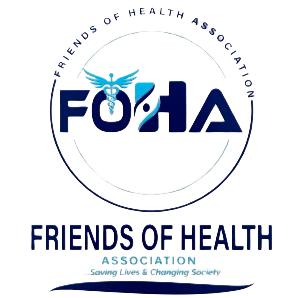Everyone double checks things sometimes. For example, you might double check to make sure the stove or iron is turned off before leaving the house. But people with obsessive-compulsive disorder (OCD) feel the need to check things repeatedly, or have certain thoughts or perform routines and rituals over and over. The thoughts and rituals associated with OCD cause distress and get in the way of daily life.
The frequent upsetting thoughts are called obsessions. To try to control them, a person will feel an overwhelming urge to repeat certain rituals or behaviours called compulsions. People with OCD can't control these obsessions and compulsions. Most of the time, the rituals end up controlling them.
For example, if people are obsessed with germs or dirt, they may develop a compulsion to wash their hands over and over again. If they develop an obsession with intruders, they may lock and relock their doors many times before going to bed. Being afraid of social embarrassment may prompt people with OCD to comb their hair compulsively in front of a mirror-sometimes they get “caught” in the mirror and can’t move away from it. Performing such rituals is not pleasurable. At best, it produces temporary relief from the anxiety created by obsessive thoughts.
Other common rituals are a need to repeatedly check things, touch things (especially in a particular sequence), or count things. Some common obsessions include having frequent thoughts of violence and harming loved ones, persistently thinking about performing sexual acts the person dislikes, or having thoughts that are prohibited by religious beliefs. People with OCD may also be preoccupied with order and symmetry, have difficulty throwing things out (so they accumulate), or hoard unneeded items.
Healthy people also have rituals, such as checking to see if the stove is off several times before leaving the house. The difference is that people with OCD perform their rituals even though doing so interferes with daily life and they find the repetition distressing. Although most adults with OCD recognize that what they are doing is senseless, some adults and most children may not realize that their behaviour is out of the ordinary.
Causes
OCD sometimes runs in families, but no one knows for sure why some people have it while others don't. Researchers have found that several parts of the brain are involved in fear and anxiety. By learning more about fear and anxiety in the brain, scientists may be able to create better treatments. Researchers are also looking for ways in which stress and environmental factors may play a role.
Signs & Symptoms
People with OCD generally:
• Have repeated thoughts or images about many different things, such as fear of germs, dirt, or intruders; acts of violence; hurting loved ones; sexual acts; conflicts with religious beliefs; or being overly tidy
• Do the same rituals over and over such as washing hands, locking and unlocking doors, counting, keeping unneeded items, or repeating the same steps again and again
• Can't control the unwanted thoughts and behaviors
• Don't get pleasure when performing the behaviors or rituals, but get brief relief from the anxiety the thoughts cause
• Spend at least 1 hour a day on the thoughts and rituals, which cause distress and get in the way of daily life.
Who Is At Risk?
For many people, OCD starts during childhood or the teen years. Most people are diagnosed by about age 19. Symptoms of OCD may come and go and be better or worse at different times.
Treatments
OCD is generally treated with psychotherapy, medication, or both.
Psychotherapy. A type of psychotherapy called cognitive behaviour therapy is especially useful for treating OCD. It teaches a person different ways of thinking, behaving, and reacting to situations that help him or her feel less anxious or fearful without having obsessive thoughts or acting compulsively. One type of therapy called exposure and response prevention is especially helpful in reducing compulsive behaviours in OCD.
Medication. Doctors also may prescribe medication to help treat OCD. The most commonly prescribed medications for OCD are anti-anxiety medications and antidepressants. Anti-anxiety medications are powerful and there are different types. Many types begin working right away, but they generally should not be taken for long periods.
Antidepressants are used to treat depression, but they are also particularly helpful for OCD, probably more so than anti-anxiety medications. They may take several weeks—10 to 12 weeks for some—to start working. Some of these medications may cause side effects such as headache, nausea, or difficulty sleeping. These side effects are usually not a problem for most people, especially if the dose starts off low and is increased slowly over time. Talk to your doctor about any side effects you may have.
OCD usually responds well to treatment with certain medications and/or exposure-based psychotherapy, in which people face situations that cause fear or anxiety and become less sensitive (desensitized) to them.
Talk to a Psychiatrist, A Psychologist or Mental Health worker in your area about OCD
Source:RHPU/BAR
{jcomments on}
